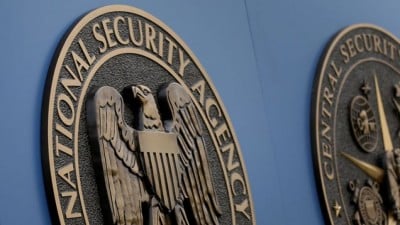Top NSA Whistleblower: Only “AFTER the Attack and People Die, They Do The Right Thing. This Should Make It Obvious What Route To Take”

The Problem Isn’t Too Little Spying … It’s Too Much
Top security experts agree that mass surveillance is ineffective … and actually makes us MOREvulnerable to terrorism.
For example, the former head of the NSA’s global intelligence gathering operations – Bill Binney – told Washington’s Blog:
I always like to point to the obvious. Look at what is happening in France and Belgium after the attack in Paris. They are going after targeted individuals, who they knew were related to the killers before the attack. And, it’s working!!! So, this is what I have been saying they should do all along.
Do a targeted selection of data from the communications based on known people and their attributes and you can succeed (as now in France and Belgium) instead of the bulk collection on everyone which buries them in data and they fail. After the attack and people die, they do the right thing. This should make it obvious what route to take.
Binney previously explained that the mass surveillance INTERFERES with the government’s ability to catch bad guys, and that the government failed to stop 9/11, the Boston Bombing, the Texas shootings and other terror attacks is because it was overwhelmed with data from mass surveillance on Americans.
Binney told Washington’s Blog:
A good deal of the failure is, in my opinion, due to bulk data. So, I am calling all these attacks a result of “Data bulk failure.” Too much data and too many people for the 10-20 thousand analysts to follow. Simple as that. Especially when they make word match pulls (like Google) and get dumps of data selected from close to 4 billion people.
This is the same problem NSA had before 9/11. They had data that could have prevented 9/11 but did not know they had it in their data bases. This back then when the bulk collection was not going on. Now the problem is orders of magnitude greater. Result, it’s harder to succeed.
Expect more of the same from our deluded government that thinks more data improves possibilities of success. All this bulk data collection and storage does give law enforcement a great capability to retroactively analyze anyone they want. But, of course,that data cannot be used in court since it was not acquired with a warrant.
After the Paris terror attack, the New York Times correctly pointed out in a scathing editorial that mass surveillance won’t help to prevent terrorism:
As one French counterterrorism expert and former defense official said, this shows that “our intelligence is actually pretty good, but our ability to act on it is limited by the sheer numbers.” In other words, the problem in this case was not a lack of data, but a failure to act on information authorities already had.
In fact, indiscriminate bulk data sweeps have not been useful. In the more than two years since the N.S.A.’s data collection programs became known to the public, the intelligence community has failed to show that the phone program has thwarted a terrorist attack. Yet for years intelligence officials and members of Congress repeatedly misled the public by claiming that it was effective.
Binney and other high-level NSA whistleblowers noted last year:
On December 26, for example, The Wall Street Journal published a lengthy front-page article, quoting NSA’s former Senior Technical Director William Binney (undersigned) and former chief of NSA’s SIGINT Automation Research Center Edward Loomis (undersigned) warning that NSA is drowning in useless data lacking adequate privacy provisions, to the point where it cannot conduct effective terrorist-related surveillance and analysis.
A recently disclosed internal NSA briefing document corroborates the drowning, with the embarrassing admission, in bureaucratize, that NSA collection has been “outpacing” NSA’s ability to ingest, process, and store data – let alone analyze the take.
Indeed, the pro-spying NSA chief and NSA technicians admitted that the NSA was drowning in too much data 3 months before 9/11:
In an interview, Air Force Lt. Gen. Michael Hayden, the NSA’s director … suggested that access isn’t the problem. Rather, he said, the sheer volume and variety of today’s communications means “there’s simply too much out there, and it’s too hard to understand.”
***
“What we got was a blast of digital bits, like a fire hydrant spraying you in the face,” says one former NSA technician with knowledge of the project. “It was the classic needle-in-the-haystack pursuit, except here the haystack starts out huge and grows by the second,” the former technician says. NSA’s computers simply weren’t equipped to sort through so much data flying at them so fast.
And see this.
If more traditional anti-terror efforts had been used, these terror plots would have been stopped.
So why does the NSA collect so much information if it admits that it’s drowning in info?

